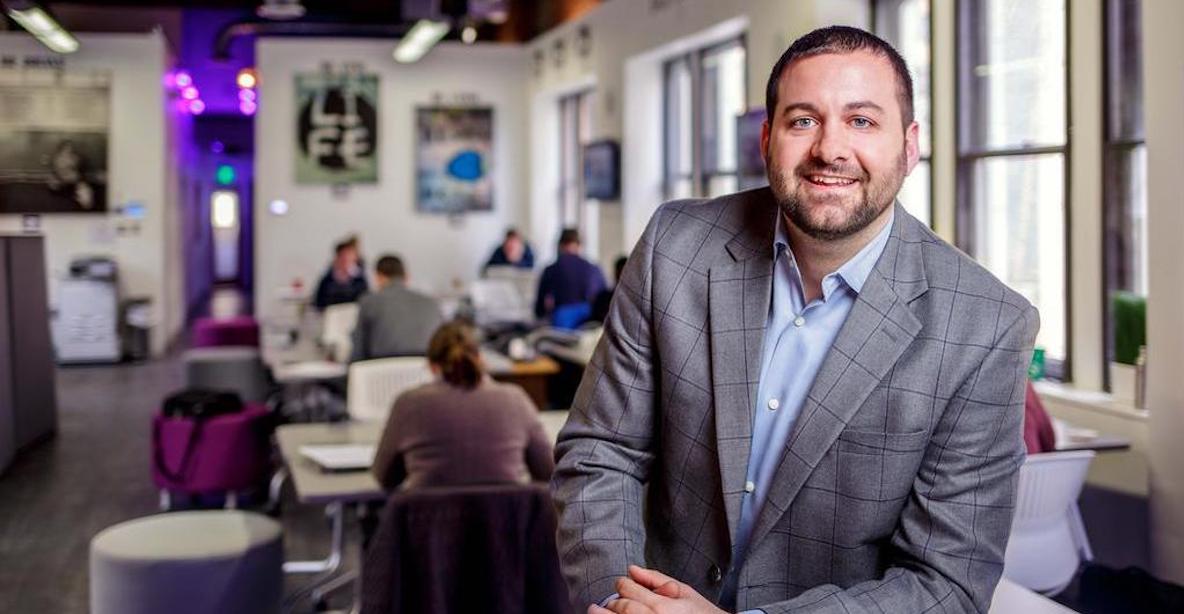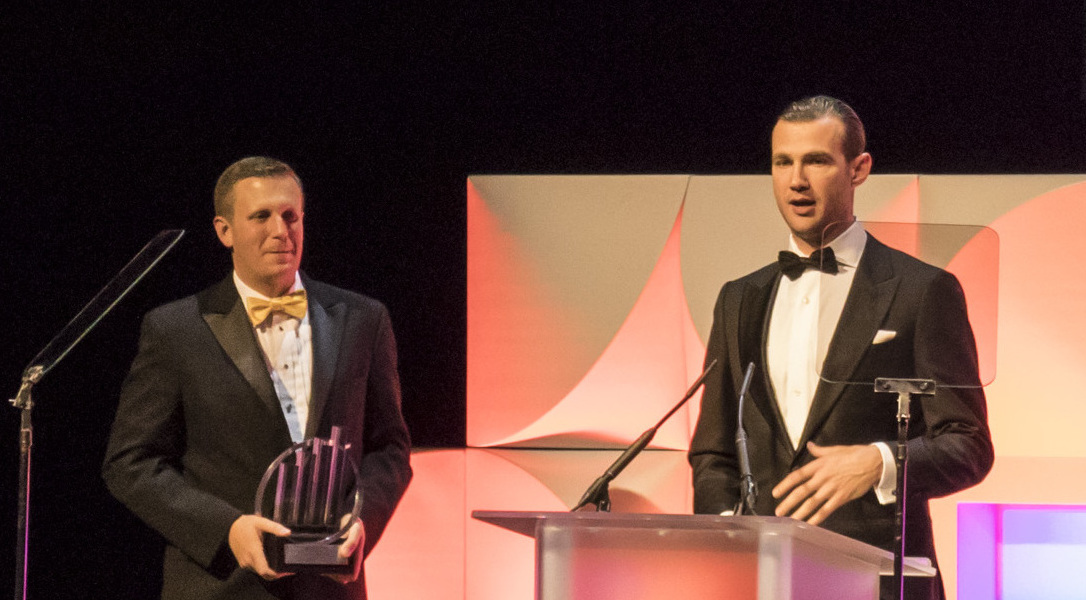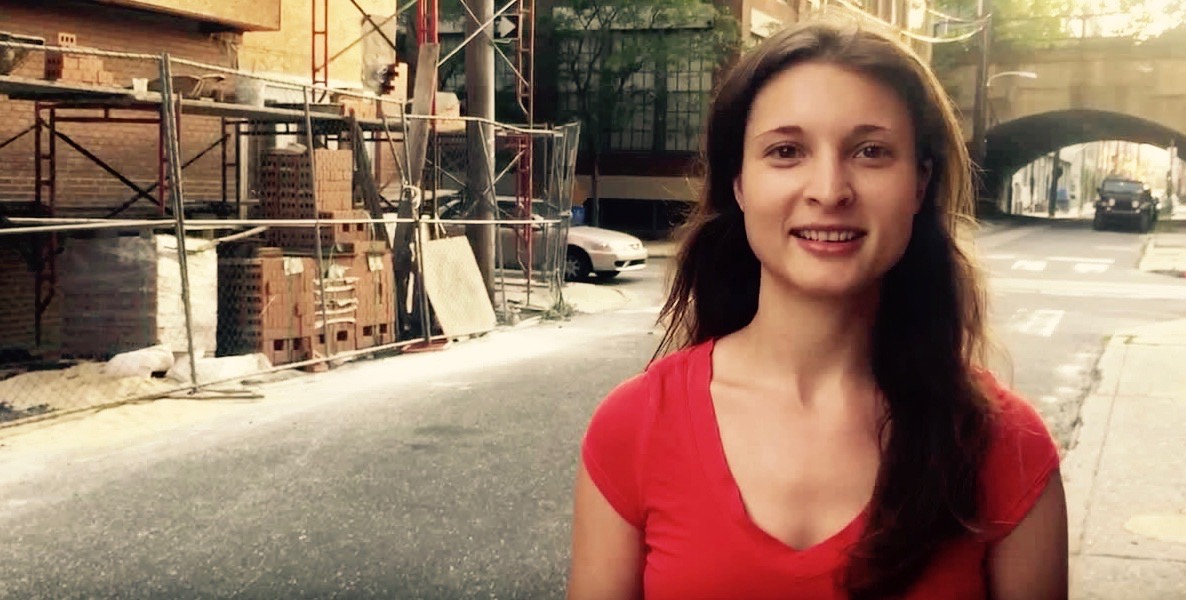Four years ago, Antoinette Marie Johnson was approaching 30 and undergoing a split from her business partner. Their company, At Media, was one of many branding agencies in our midst; most of their five employees were dusting off their resumes. Something had to change.
“I’d always disliked how At Media was just another branding agency,” she recalls now, over breakfast one recent morning at Center City’s Le Pain Quotidien, where, a person of enthusiasms, she raves about the speculoos cookie butter spread. “I’d always wanted something more purposeful. We were at our lowest point, on the brink of failure, and when you have nothing to lose you can be more honest about what you want. What I hadn’t realized was that I had been doing this already.”
By “this,” Johnson is referring to her subsequent doubling down on urbanism. After she led her team through the effort of rebranding the company last summer as Cohere—a branding agency dedicated to the mission of revitalizing cities through the transformation of underutilized or abandoned spaces, turning them into projects that impact communities—she smartly threw a party at Spring Arts Pop Up, next to the Reading Viaduct Rail Park, with the proceeds benefitting the 5th Square urbanist political action committee.
Johnson had always been into making the city better—a few years ago, she’d helped create the Point Breeze Pioneers, a greening group that resurrected community gardens and planted trees in the rapidly changing neighborhood. She’d just never thought of it as the basis for a business model before.
Now, that fledgling five-person firm has 13 full-time employees; is profitable, with offices in Baltimore and projects in Denver and Dallas; and boasts of clients like uCity Square, the University City Science Center, Brickstone Realty, Arts & Crafts Holdings, Spring Arts and the Schulson Collective restaurant group, which has given the city both Double Knot and Harp & Crown.
Perhaps Cohere’s most interesting local project is its involvement with MRP Realty and Cana Development in the forthcoming remaking of the Bourse into a Philly-centric, chef-driven food hall, not unlike Brooklyn’s Smorgasburg, a buzzy foodie market—not to be confused with the food courts of yesteryear—that has turned into a type of incubator for up-and-coming chefs.
Philly has no dearth of PR, advertising and branding shops, but Cohere has differentiated itself because, four years ago, with nothing to lose, Johnson and her team turned to “placemaking,” the notion that vibrancy in cities doesn’t just happen, that designers can impart meaning onto public spaces—from buildings to parks to plazas—and turn them into destinations where citizens come together to work, play and coexist.
“Mission-driven brands are where consumerism is headed,” Johnson says. “Just today, I sent my clients an article that said that purpose-driven brands are the most profitable.”
A self-described urban studies geek while at Temple University, (where she was a Resident Assistant and Philly PR maven Rakia Reynolds, a mentor, was her Resident Director), Johnson returned to her bookshelf when her business flirted with rock bottom in 2013. Specifically, she leaned on her dog-eared copies of urban planning books to form a mission for the agency. She dove back into the works of Richard Florida, author of The Rise of the Creative Class, and reacquainted herself with Edward Glaeser’s argument in The Triumph of a City that cities become world class by excelling in five categories: education, housing, health, art and culture.
Therein, Johnson realized, lay the need for Cohere, which, after all, means “to ![]() form a whole.” Philadelphia can be a siloed town. The problem was not that we don’t have a lot going for us in all five categories—it was that too few were putting the pieces together into a bigger picture.
form a whole.” Philadelphia can be a siloed town. The problem was not that we don’t have a lot going for us in all five categories—it was that too few were putting the pieces together into a bigger picture.
“We decided our projects would be driven by a mission to help align the leaders and institutions in each of these categories around the shared goal of improving Philadelphia,” she says. “Cohering their values and efforts for the greater good of the city, helping us all reach our full potential.”
What the team does for their clients, then, is what the city also needs: A type of project manager whose job it is to merge the disparate values of its stakeholders into common cause. If it’s a real estate deal, for example, that means aligning design, construction, and the developer into a whole that is greater, and more aspirational, than the sum of its parts.
“NextFab is a great example of our work,” Johnson says of the provider of shared manufacturing spaces. “We’ve helped refresh their brand so that the mission is even clearer, offering a cohesive experience from their website to their spaces. The result is helping the cities NextFab resides in grow in the manufacturing, design and fabrication space. Mission-driven brands are where consumerism is headed. Just today, I sent my clients an article that said that purpose-driven brands are the most profitable.”
Cohere has differentiated itself because Johnson and her team turned to “placemaking,” the notion that vibrancy in cities doesn’t just happen, that designers can impart meaning onto public spaces—from buildings to parks to plazas—and turn them into destinations where citizens come together to work, play and coexist.
There was little to no inkling of Johnson’s urbanist theorizing in her early childhood, but there was the seeds of entrepreneurship. She was born in Downingtown, Chester County, raised by a single mom. She helped pay for tuition at Temple by joining the Army. “I craved discipline and structure, but as a creative person, I rejected it at the same time,” she says. Basic training was in Missouri’s Fort Leonard Wood, the largest military base in the nation—“Fort Lost In The Woods, we called it,” she says. She entered the Reserves and enrolled at Temple, where she studied urban planning and made side money after teaching herself logo and web design.
Johnson is petite and prone to expressing her nervousness, particularly when it comes to public speaking. She doesn’t project the swagger of an Army vet, but you underestimate her at your peril. “I like to be unexpected and surprise people,” she says, with the hint of a sly smile.
![]() Last spring, Johnson was feeling particularly nervous. She was dead set on rebranding her company, but couldn’t come up with the right name. After coming across a Mark Zuckerberg quote—“If you’re really proud of it when you launch it, you’ve launched it too late”—she zeroed in on an upcoming date, on which she’d step boldly into her future. But there was still that minor issue of a name.
Last spring, Johnson was feeling particularly nervous. She was dead set on rebranding her company, but couldn’t come up with the right name. After coming across a Mark Zuckerberg quote—“If you’re really proud of it when you launch it, you’ve launched it too late”—she zeroed in on an upcoming date, on which she’d step boldly into her future. But there was still that minor issue of a name.
She sought out all sorts of consultants. It wasn’t until late one night at Wm. Mulherin’s Sons bistro that it all came into focus. She regularly picks the design brain of Daniel Olsovsky, one of the creative minds behind Mulherin’s and the extended-stay hotel, The Roost. They specialize in fitting modernist touches into historic spaces, and, on this night, she couldn’t stop talking about codifying her purpose into a new company. Olsovsky pulled a joint from behind his ear, fired up, paced around, lost in thought. A few hours later he texted her, straight outta Webster’s:
“Cohere: kōˈhir/
verb
- be united; form a whole.”
Antoinette Marie Johnson had her next act, and it doubled as a prescription for what her city so desperately needs.
Header photo: Cohere





